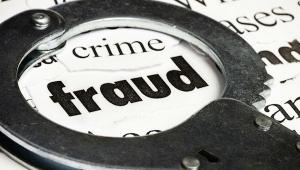In its annual fraud tracker, out today, the institute showed this type of crime remains a “major financial threat” to councils with housing fraud being the most common type.
The total value of fraud prevented is down from last year’s CIPFA estimates - from £336m to £302m – while the prevalence of fraud has increased from 75,000 cases to 80,000 this year.
Housing fraud remained the most common type - 74.1% of total fraud reported – as it was last year.
The largest growing area of fraud is in business rates, which jumped from £4.3m in 2016-17 to £10.4m in 2017-18. It now accounts for 3.4% of all fraud reported by councils.
CIPFA suggested that the rise in the number and value of business rates fraud detected could be a result of more authorities participating in business rates data matching activities, uncovering more cases of fraud that had previously gone unnoticed.
The annual survey, which took evidence from 144 local authorities in the UK, found that the number of serious or organised crime cases doubled to 56 in 2017-18.
CIPFA’s report said that this increase may suggest that fraud attacks are becoming more complex and sophisticated due to fraud teams becoming more effective at prevention.
The institute commended councils’ counter fraud teams but said that there is “more work to be done” with multiple reports suggesting fraud costs local government anywhere from £2.1bn to £7bn annually.
Rob Whiteman, chief executive of CIPFA, said: “Fraud is a serious issue for local authorities. We must collaborate to combat it and adopt a cross country strategic approach if we are to make serious inroads in the fight against fraud.
Council tax represents the highest number of fraud cases reported, but only 8.7% of the detected value, the report said.
The Fraud and Corruption Tracker found that more councils are beginning to respond to the threat posed by fraud.
The number of councils with a dedicated counter fraud team went from 35% in 2016-17 to 51% in 2017-18.
Whiteman said: “Fraud deprives the government of the vital resources it needs to provide public services.
“When local government is running on empty- as it is now- it needs to be preserve every last drop.”
The CIPFA-run London Counter Fraud Hub pilot was last November have found to have exceeded expectations.
The four councils in the hub - Ealing, Camden, Islington and Croydon - identified 5,658 cases of potential fraud - almost five times the 1,213 minimum cases anticipated.
Run in conjunction with partners including BAE Systems and Ordnance Survey, the pilot was launched in June last year.











